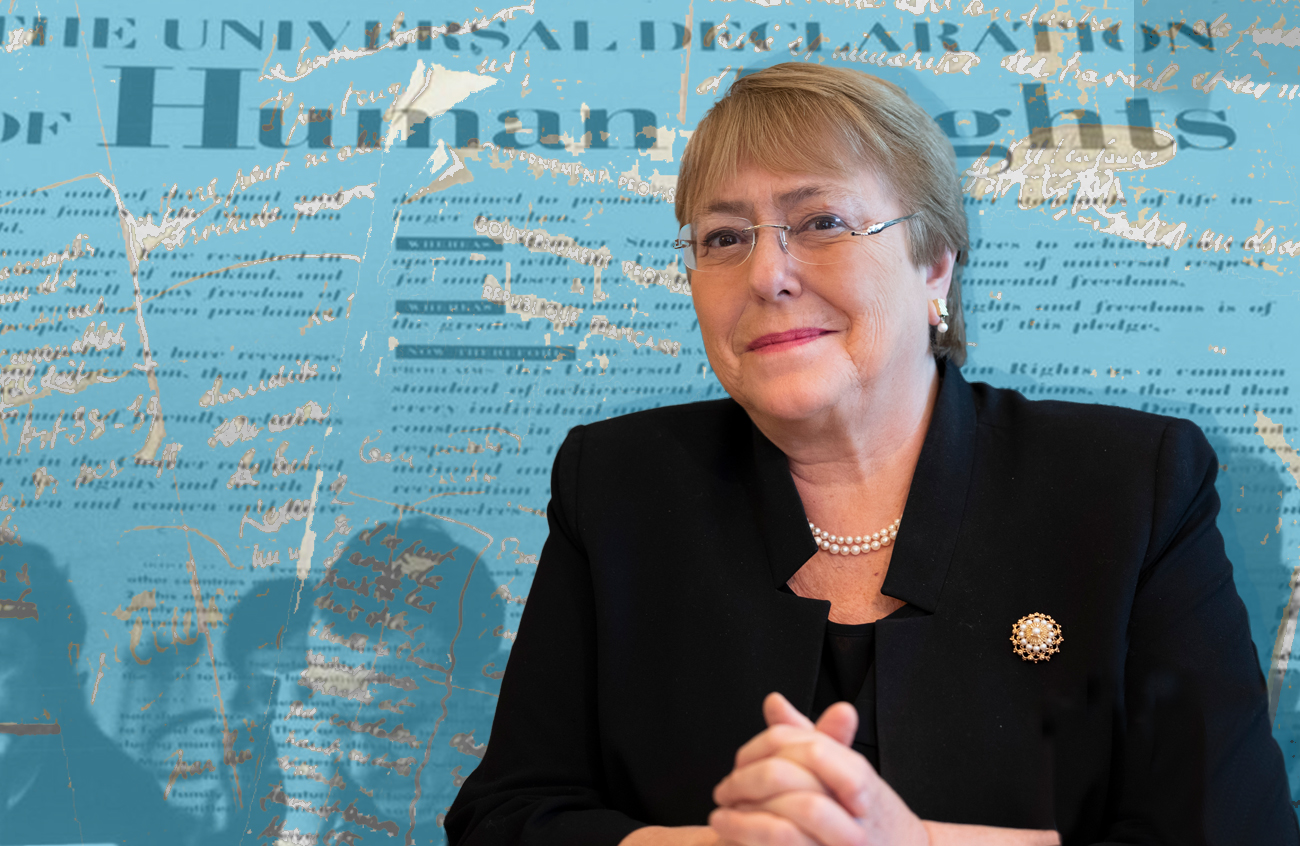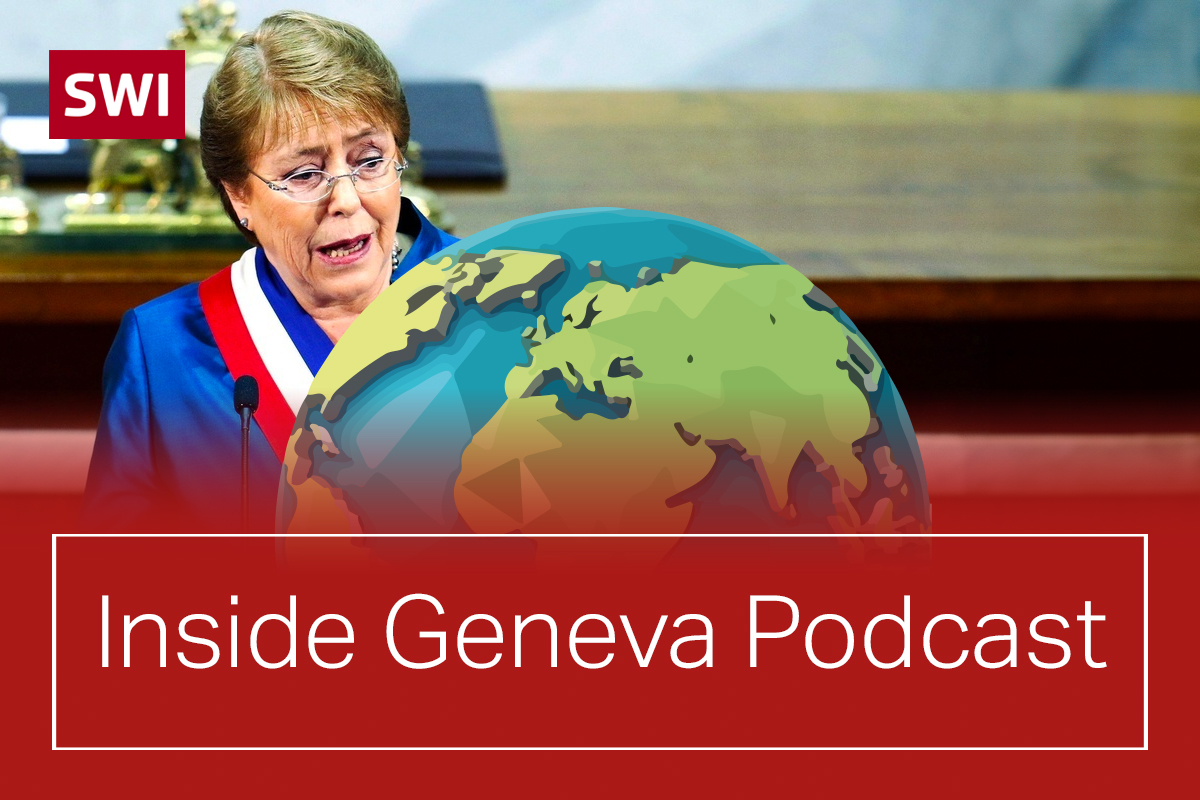
Michelle Bachelet: The Universal Declaration is ‘good enough’

Michelle Bachelet was United Nations Human Rights Commissioner for four years, until August 2022. Her time in office contained many challenges, from the Covid-19 pandemic, to Russia’s invasion of Ukraine, and huge pressure to publish a report on China’s treatment of its Uyghur population.
Bachelet knows first hand what human rights violations are. As a young woman she witnessed Augusto Pinochet’s military coup in Chile, and the violent repression which followed.
Her own father was arrested, and, as a result of torture, died of a heart attack in prison. Later, she and her mother were arrested and taken to Santiago’s notorious Villa Grimaldi, an interrogation centre run by Chile’s secret police.
2023 is the 75th anniversary of the Universal Declaration of Human Rights, a ground-breaking set of principles which has become the most translated document in the world. The current UN High Commissioner for Human Rights, Volker Türk, describes the declaration as “a transformative document […] in response to cataclysmic events during the Second World War.”
The very first UN commissioner, Jose Ayala Lasso from Ecuador, took office in 1994. Why did it take so long to appoint someone when the Universal Declaration was drafted in 1948?
Our Inside Geneva podcast has interviewed all the former UN High Commissioners for Human Rights (a job sometimes called the UN’s toughest) to hear their experiences, their successes, and their challenges.
Neither knew what had happened to the other. Bachelet remembers focusing on trying “to be as strong as possible, not to fail and not to…confess things that could harm other people.”
Eventually both were released, but Chile’s dictatorship continued. And Bachelet continued her work, as a doctor, and also in politics. When democracy finally returned, she was ready to serve her country, first as a government minister, then, not once but twice, as president.

More
Inside Geneva: Michelle Bachelet’s personal fight for human rights
Political experience
Why then go from being head of government to a senior UN job? In fact, Bachelet had done a stint at UN Women in between her two terms as Chile’s president, so she was not a stranger to the United Nations. Today, she is convinced her political experience was highly useful at UN human rights.
“I could put myself in the shoes of that person who was making those decisions, and tried to think which could be the arguments that would convince them to respect human rights. That it’s not only the right thing to do but also the smart thing.”
China Pressure
Bachelet may be best remembered for the pressure she came under to publish a UN report on conditions in Xinjiang province in China, where human rights groups said Beijing had interned up to a million Uyghurs in “re-education camps”, separating children from parents and forcing women to undergo sterilisation.
That report was delayed for months, while different parties (including China) wrangled over its contents. Bachelet remembers being urged on an almost daily basis to postpone, or to publish.
‘‘I used to tell them look if you ask me not to publish this, then tomorrow, another big country will call me and say no, publish this. So then the only thing I can do is to go back home. Because I have to do my job.”
Finally, at five minutes to midnight on her last day in office, Bachelet published the report. It was hard hitting, suggesting China was committing possible crimes against humanity.
Black lives matter
While China dominated Bachelet’s time in office, there’s another issue she should be remembered for: her work on the rights of people of African descent.
The killing of George Floyd by a US police officer sparked worldwide outrage. In Geneva, UN Human Rights provided support, and a platform, for families of those (and there are many) who had been similarly killed. Among them was Philonise Floyd, the brother of George Floyd, who addressed the Human Rights Council in 2020.
Bachelet publicly drew the connection between the legacy of slavery and colonialism, and the systemic discrimination of people of African descent. She called for reparations because of “centuries of violence and discrimination”.
Will anything come of that call? “I don’t know”, is her honest answer, but at least, she feels, the debate has started.
And what of the Universal Declaration now that it is 75? Bachelet is wary of calls to change it to reflect new awareness of equality and identity. The declaration already, she points out, “says all people, all persons, everyone is included there. This is good enough”.
“The Universal Declaration is still valid. Because it gives a minimal standard, of how we can live together.”

In compliance with the JTI standards
More: SWI swissinfo.ch certified by the Journalism Trust Initiative

















![The four-metre-long painting "Sonntag der Bergbauern" [Sunday of the Mountain Farmers, 1923-24/26] had to be removed by a crane from the German Chancellery in Berlin for the exhibition in Bern.](https://www.swissinfo.ch/content/wp-content/uploads/sites/13/2025/12/01_Pressebild_KirchnerxKirchner.jpg?ver=a45b19f3)












You can find an overview of ongoing debates with our journalists here . Please join us!
If you want to start a conversation about a topic raised in this article or want to report factual errors, email us at english@swissinfo.ch.